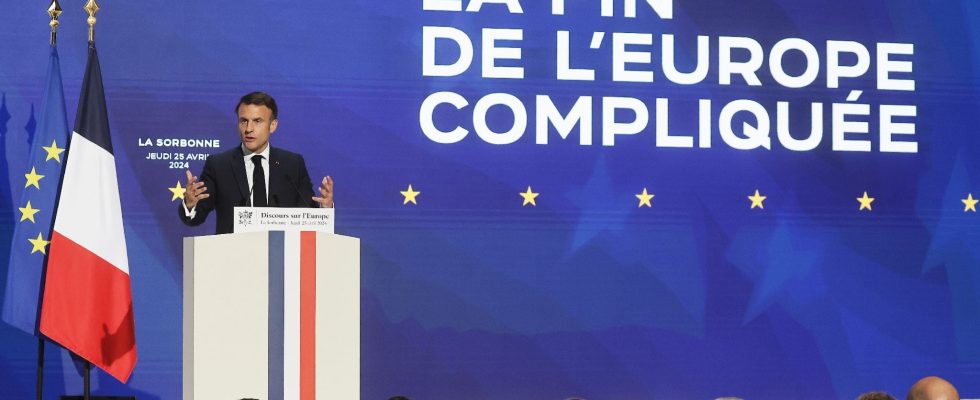A single question, decisive for the future of Europe, should agitate the public debate during this European campaign: how to escape from what today looks like a triangle of incompatibilities – preserve the European social model of an aging continent , build a real defense of the Twenty-Seven and reconcile energy transition, growth and development of powerful players in the digital world? Let’s start with some good news: a few weeks before the European elections, some are trying to answer this incredibly complex question, with detailed proposals and an agenda.
Enrico Letta, former President of the Italian Council and now a Member of Parliament, also head of the Jacques-Delors Institute, tackles this in the report “Much more than a market” which he has just presented in Brussels on the deepening of the single market. This is also the case of Mario Draghi, former president of the European Central Bank and former head of the Italian government, who is preparing to submit his report on European competitiveness. The bad news? The European campaign, as always focused on national political issues, instead of addressing issues on a European scale, largely ignores them. Sad paradox when the resolution of this equation is obligatory otherwise we will see Europe’s disconnection from the United States and its dependence on Chinese green technologies continue.
The unknown in this equation can be summed up in one word: “money”. Because transforming this triangle of incompatibilities into a virtuous circle requires our collective capacity, as Europeans, to invest massively. This is how we must understand the growing references, in public debate, to the mobilization of savings, to the union of capital, or even to a common European loan. And this debate will continue to gain momentum. Not because we discover that investing in defense or energy is expensive, but because of three factors – geopolitical, commercial and financial – which complicate the situation at the same time as they condemn us to act very quickly : uncertainty as to the long-term desire of the United States to ensure the security of Europe; China’s commercial offensive, flooding the global market with solar panels and other green technologies at knockdown prices; finally, the end of free money, with the rise in interest rates.
The energy crisis has killed demand
For the energy transition, this last parameter changes everything. For what ? Whether they are called nuclear energy, hydroelectricity, solar energy or wind energy, the means of producing low-carbon electricity have one characteristic: they require significant initial capital investments, while their operating costs are low. Or the exact opposite of fossil fuels, whose fixed costs are relatively low compared to operating costs.
The increase in the cost of financing low-carbon energies would not be a problem in a context of strong demand for electricity. This is where the problem lies: the violence of the energy crisis has killed European demand, whether it is “bad” (energy wasted when prices are permanently low) or “good” , which consists of electrifying formerly fossil-based uses (electric cars, heat pumps or industrial processes). In this context, electricity market prices are collapsing and, with them, the profitability of existing or future low-carbon production assets: nuclear and renewables are today in the same boat. Financing such projects becomes a challenge… unless we act on the right scale and change the rules of the game for investors.
However technical the debates carried out by Enrico Letta, Mario Draghi or Emmanuel Macron may be, in his abundant speech at the Sorbonne on April 25, they are nevertheless essential. Is Europe complicated? Yes, too much. Is the world complex? Without a doubt. But the issue is simple, Darwinian: adapt or suffer.
.
